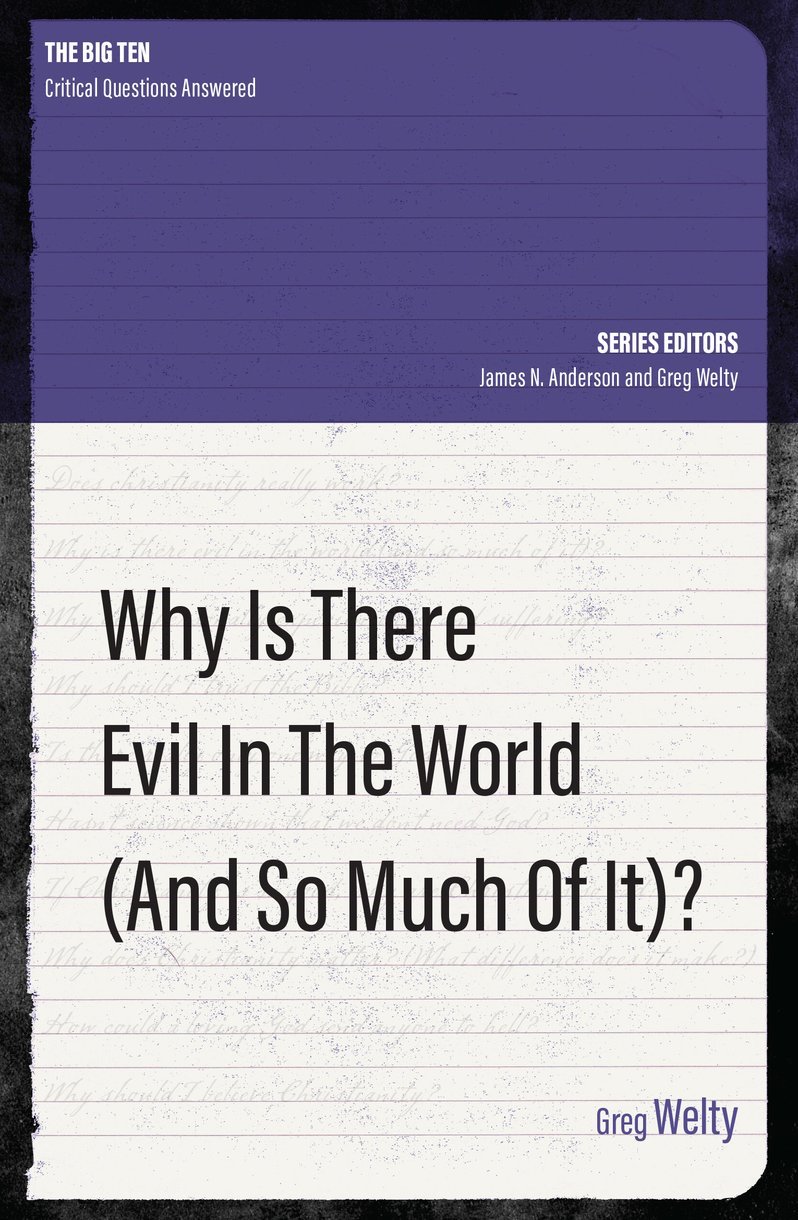A Brief Book Summary from Books At a Glance
by Steve West
About the Author
Greg Welty (D. Phil, University of Oxford) is a professor of philosophy at SEBTS.
Table of Contents
1 What is the Problem of Evil?
2 The Greater-Good Theodicy: A Threefold Argument for Three Biblical Themes
3 Licensing the Greater-Good Theodicy: God’s Sovereignty over Evil
4 Limiting the Greater-Good Theodicy: The Inscrutability of God’s Purposes
5 Can Free Will or the Laws of Nature Solve the Problem of Evil?
6 Objections
Appendix: Going Beyond Job, Joseph, and Jesus for the Greater-Good Theodicy
Summary
Chapter 1: What is the Problem of Evil?
Although there is a difference between sincerely asking questions and making an argument, when people ask questions about God’s relationship with evil and suffering, often an argument is implied. If the believer cannot give a good answer, the questioner assumes that a good answer does not exist. The critic who asks the question bears the burden of proof to show that their line of reasoning leads to the conclusion that God does not exist, but a burden of proof also lies on the believer in terms of a proper response to the question. Historically, the problem of evil has often been phrased along the lines that a perfectly good, powerful, and all-knowing God would want to prevent evil and would be able to prevent it. Therefore, since evil exists, God must not exist. In the problem of evil, evil is understood as a “significant case of pain and suffering.” Atheists may not be able to account for moral evil, but pain and suffering are real, and Christians need to explain why a good God allows such things to exist. For Christians to refer to God as “good” requires the word “good” to have a coherent definition and content.
We need to bear in mind the distinction between moral evil and natural evil. The former is caused by moral agents, whereas the latter is caused by amoral natural realities (e.g., devastation resulting from tornadoes). There are times when it is appropriate to critique an argument’s logical structure (if it is invalid), but for the problem of evil, the response needs to focus on the content more than the structure of the argument. Rather than rejecting a premise that is true, it is better for a person to acknowledge that they do not know an adequate answer. Christians cannot deny that God is perfect, nor we can deny that he could prevent any evil. (Even a human police officer can prevent a murder in many circumstances.) The premise to reject in the skeptic’s argument is that a perfectly good being would prevent every instance of evil. Although human analogies are inadequate, we can see that a parent may discipline their child (i.e., do something they find painful to produce a greater good or to prevent a worse evil from occurring), or a dentist may cause a patient pain, and they are justified in doing so if there are good reasons for their actions. To be a good argument, the problem of evil must show that God does not have a good, justifying reason for allowing the existence of evil. Theodicies are the answers believers give to try to show that God does in fact have a good, justifying reason. . . .
[To continue reading this summary, please see below....]The remainder of this article is premium content. Become a member to continue reading.
Already have an account? Sign In
